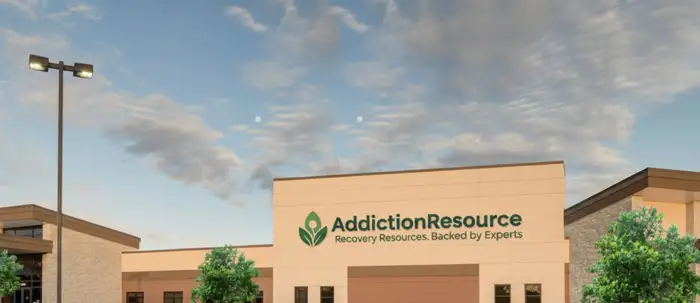Virginia is a state known for its historical significance. It is located in the southeastern region of the United States, and it has a high impact on the nation’s policies due to its diverse economy, which includes sectors like agriculture, government, and technology.
The state is home to a population of approximately 8.5 million people, of which 68% are White, 19% African American, and 9% Hispanic or Latino, among others.
Like other states in the country, despite its economic and governmental strengths, Virginia faces significant challenges related to substance abuse, particularly with opioids and alcohol.
Table Of Contents:
Drug and Alcohol Abuse in Virginia
Virginia is not exempt from the escalating numbers of substance abuse disorders. This state, like others, has been significantly impacted by drug consumption, especially by a type of consumption pattern that involves opioids and alcohol.
Just in 2020, the state reported approximately 1,482 opioid-related deaths, and in 2022, Virginia reported 2,490 drug overdose deaths, with nearly 79% involving fentanyl, fentanyl analogs, or tramadol. Emergency room visits related to drug overdoses had increased by 5%, totaling 22,398 visits in 2023. These numbers clearly reflect the rising impact on all drug consumption and not only opioids.
Stimulant-related overdoses, in particular, have shown an increase, especially among non-Hispanic White males between the ages of 25 and 54 years old.
Alcohol abuse is also a critical issue in this state, and it is demonstrated by the fact that in 2020, alcohol-related deaths hit 1,200 and bypassed it, creating a substantial public health challenge. Moreover, alcohol use disorder (AUD) led to about 12,385 rehab admissions in 2020.
Teen substance use is another area of concern in Virginia. In 2020, about 6.5% of high school students reported using alcohol in the past month, and 4.2% admitted to using marijuana at least once.
Rehab Treatment Centers in Virginia
This state is fighting the substance abuse disorder crisis with several treatment options. The state is home to a total of 266 rehab centers that deliver various and different services, including inpatient and outpatient programs, medical detoxification, dual diagnosis treatment, and specialized care for different populations.
Inpatient Rehab in Virginia
According to the 2020 National Survey of Substance Abuse Treatment Services (N-SSATS), by that year, Virginia had approximately 95 inpatient rehab facilities.
Inpatient rehab facilities in the state can provide 24/7 care with constant monitoring for those who need constant medical supervision.
Outpatient Rehab in Virginia
When talking about outpatient options, we can say that Virginia also has several treatment centers. By 2020, the state had 287 facilities providing such services.
Like in other places, outpatient rehab in Virginia is focused on maintaining daily responsibilities while receiving treatment. Programs range from regular outpatient treatment to more intensive options like partial hospitalization.
| Type of Treatment Facility | Number of Facilities | Location |
|---|---|---|
| Outpatient Rehab | 287 | Predominantly Urban |
| Inpatient Rehab | 95 | Predominantly Urban |
Alcohol Rehab in Virginia
In 2020, there were around 220 facilities in Virginia dedicated to treating alcohol use disorder (AUD). These facilities are characterized by offering a wide range of treatment options, including both outpatient and inpatient care, but directed specifically to this problem. While most of these facilities are located in urban areas, there are options available in rural regions as well.
Mental Health and Co-occurring Disorders
In 2020, approximately 58% of individuals in treatment were diagnosed with co-occurring mental and substance use disorders. Many of Virginia’s treatment facilities are equipped to handle these dual diagnoses, employing integrated treatment approaches that address both mental health and substance use issues simultaneously.
Rehab Prices in Virginia
The cost of rehab in Virginia varies depending on the type and duration of the program. Here are some average costs:
| Type of Rehab | Cost Range | Duration |
|---|---|---|
| Outpatient Rehab | $2,500 to $15,000 | 30-day program |
| Inpatient Rehab | $7,500 to $30,000 | 30-day program |
| Inpatient Rehab (Long-Term) | $30,000 to $100,000 or more | 60 to 90 days |
| Detoxification Only (Detox) | $1,500 to $6,000 | 3 to 7 days |
| Medication-Assisted Treatment (MAT) | $500 to $1,200 | Per month |
| Luxury Rehab | $40,000 to $120,000 or more | 30-day program |
Insurance and Payment Options
Rehab treatment can be considered expensive, but in Virginia, many facilities are now accepting different forms of insurance, including private health insurance, Medicaid, and Medicare, to reduce financial barriers.
In 2020, about 140 facilities accepted Medicaid, and 80 facilities accepted Medicare. Additionally, some centers offer sliding fee scales or provide treatment at no charge for those who qualify based on financial need.
Best Rehab Centers in Virginia
Here is a list of some of the best rehab centers in Virginia:
Drug Rehab in Virginia – Bottom Line
Virginia is a state highly impacted by the increased rates of substance abuse around the country. It is also home to a broad network of rehab centers offering diverse options from inpatient to outpatient care to assist those in need. The state has actively worked to address the problems created by substance use disorder, creating a comprehensive framework that includes treatment and prevention strategies. Top facilities in the state provide robust treatment programs and accept a range of insurance plans, including Medicare and Medicaid.
Frequently Asked Questions
What are the specialized rehab programs available in Virginia?
Virginia offers a range of specialized rehab programs designed to address the unique needs of diverse populations. The programs offered to target populations include gender-specific programs for men and women, dual diagnosis, adolescents and young adults, veterans, LGBTQ+ individuals, and pregnant or postpartum women. These programs are in place to make sure that these groups receive care that addresses their specific challenges and circumstances.
Can I receive treatment for other health issues while in rehab in Virginia?
Yes, many rehab centers in Virginia offer comprehensive care that includes treatment for co-occurring mental health disorders and chronic health conditions, ensuring a holistic approach to recovery. As in other places, facilities that offer care for co-occurring disorders are designed to provide integrated care, meaning that they treat both substance use disorders and other medical or psychological issues simultaneously.
This type of approach is fundamental for anyone with an underlying health condition who needs to find stability while treating substance or alcohol use disorder.
What should I look for when choosing a rehab center in Virginia?
When choosing a rehab center, it’s important to consider several key factors to ensure the facility aligns with your specific needs. Start by evaluating the types of treatment programs offered, looking for licensed professionals who are experienced in addiction treatment and mental health care, considering the center’s accreditation and reputation, looking for successful rates, and making financial decisions to adjust to your budget. It is also a good idea to check for your insurance coverage.
What accreditations does a good rehab center need in Virginia?
The Joint Commission (TJC) and the Commission on Accreditation of Rehabilitation Facilities (CARF) are two prestigious accreditations that indicate high standards in safety, quality, and effective treatment practices.
Additionally, ensuring the facility is licensed by the Virginia Department of Behavioral Health and Developmental Services (DBHDS) confirms compliance with state regulations. These credentials can give you confidence in the center’s commitment to quality care and patient safety.
How do Virginia rehab centers handle relapse prevention?
Virginia rehab centers handle relapse prevention by incorporating comprehensive strategies into their treatment programs. Many centers also offer aftercare programs, such as regular check-ins, support groups, and access to resources like sober living environments to help individuals maintain their sobriety long after the initial treatment ends.
Relapse prevention plans are tailored to each individual’s needs, ensuring that they have the tools and support necessary to sustain their recovery over the long term.
Is Virginia developing public policies to stop the rise in substance abuse disorder?
Yes, Virginia is actively developing and implementing public policies to combat the rise in substance use disorders.
The state has introduced several initiatives aimed at reducing substance abuse, including expanding access to treatment services, increasing funding for prevention programs, and enhancing education on the dangers of substance abuse.
Virginia has also focused on improving the availability of medication-assisted treatment (MAT) and has implemented stricter regulations on opioid prescriptions to prevent misuse.
These efforts reflect Virginia’s commitment to addressing the substance abuse crisis through comprehensive public policy measures.
Hope Without Commitment
Find the best treatment options. Call our free and confidential helpline
Most private insurances accepted
Local Rehabs in Virginia
Page Sources
- US Census Bureau: Virginia
- Virginia Department of Health: Drug Overdose and Related Health Outcomes
- CDC: Provisional Drug Overdose Death Counts
- Alcohol Abuse Statistics [2023]: National + State Data - NCDAS. (2024, May 2). NCDAS. https://drugabusestatistics.org/alcohol-abuse-statistics/
- National Survey of Substance Abuse Treatment Services. (2021, July 14). https://www.samhsa.gov/data/data-we-collect/n-ssats-national-survey-substance-abuse-treatment-services
- SAMHSA: Key Substance Use and Mental Health Indicators in the United States: Results from the 2020 National Survey on Drug Use and Health











 FindTreatment.gov
FindTreatment.gov